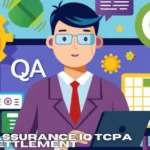Introduction to Internet Scams
The internet is a vast and wonderful place, filled with endless opportunities for connection, learning, and entertainment. However, lurking in the shadows of this digital paradise are dangers that can catch even the most cautious users off guard. Internet chicms have become increasingly prevalent as more people navigate online spaces. These scams come in many shapes and sizes, each designed to trick you out of your hard-earned money or personal information.
Understanding these scams is crucial for anyone who spends time online. Whether you’re shopping on e-commerce sites or scrolling through social media feeds, being aware of potential threats can make all the difference. This guide will help you recognize common types of internet chicms and equip you with strategies to protect yourself from falling victim to them. With knowledge at your fingertips, you’ll be better prepared to surf the web safely!
Common Types of Internet Scams
Internet scams come in various forms, each designed to trick unsuspecting users. One of the most prevalent types is phishing. Here, scammers impersonate legitimate entities via email or messages to steal personal information.
Another common scam involves fake online shopping sites. These websites lure consumers with too-good-to-be-true deals but ultimately deliver nothing after payment.
Romance scams are also on the rise. Fraudsters create fake profiles on dating platforms, building emotional connections and eventually asking for money under false pretenses.
Tech support scams target those seeking help for computer issues. Scammers pose as representatives from reputable companies and gain remote access to devices, often leading to data theft.
Investment frauds promise high returns with little risk, enticing individuals into losing significant amounts of money without any real opportunity for profit. Each type requires vigilance and awareness to avoid falling victim.
How to Identify and Avoid Online Scams
Identifying online scams can be tricky. Scammers are becoming more sophisticated every day. A few telltale signs can save you from falling victim.
First, watch for suspicious emails or messages. Unsolicited offers often contain poor grammar and generic greetings. If it sounds too good to be true, it probably is.
Next, check the website’s URL carefully. Legitimate sites use HTTPS encryption, while spammy ones may not. Always look for reviews before making a purchase or sharing your information.
Scrutinize links before clicking them. Hover over them to see where they lead—malicious sites often hide behind shortened URLs.
Trust your instincts. If something feels off or rushed, take a step back and research further before proceeding with any transaction or personal disclosure. Awareness is key in navigating the digital landscape safely.
Protecting Your Personal Information Online
Your personal information is your digital footprint. It’s crucial to guard it like you would a treasure.
Start by using strong, unique passwords for each account. Avoid easily guessable details like birthdays or pet names. Consider a password manager to keep track of them securely.
Enable two-factor authentication whenever possible. This adds an extra layer of security that can thwart potential scammers and hackers.
Be cautious about the information you share on social media platforms. Oversharing can make you vulnerable to phishing attacks and identity theft.
Regularly update your privacy settings on all accounts. Familiarize yourself with who can see your posts and personal data.
Always be wary of unsolicited emails or messages asking for sensitive information. Legitimate organizations will never ask for personal details through insecure channels. Stay alert; protecting yourself online is an ongoing effort!
Steps to Take if You Fall Victim to an Internet Scam
Discovering you’ve fallen victim to an internet scam can be overwhelming. The first step is to stay calm and assess the situation.
Immediately change your passwords for any affected accounts. This will help prevent further unauthorized access. Utilize strong, unique passwords to enhance security.
Next, contact your bank or credit card company if financial information was compromised. They can assist in monitoring transactions and potentially reversing fraudulent charges.
Document everything related to the scam. Take screenshots, save emails, and note dates of interactions. This information may prove vital for reporting purposes.
Report the incident to relevant authorities such as the Federal Trade Commission (FTC) or local law enforcement. Your report could aid in preventing others from falling prey to similar scams.
Consider placing a fraud alert on your credit report through one of the major bureaus—Equifax, Experian, or TransUnion—to protect against identity theft.
Government Resources for Reporting and Preventing Internet Scams
The government provides several resources dedicated to combating internet scams. Websites like the Federal Trade Commission (FTC) offer guidance on how to recognize and report fraudulent activities. They also share valuable information about current scam trends.
Another vital resource is the Internet Crime Complaint Center (IC3). This platform allows users to file complaints about cybercrimes, helping authorities track and address these issues effectively.
State attorneys general often have consumer protection divisions as well. These offices work in tandem with national agencies, ensuring local residents receive assistance tailored to their specific needs.
For those seeking proactive measures, government organizations frequently publish tips and educational materials aimed at preventing online fraud. Staying informed through these channels can empower individuals to protect themselves from becoming victims of internet chicms.
Conclusion: Staying Safe and Informed in the Digital Age
Navigating the digital landscape requires vigilance. Internet chicms are evolving, and scammers continue to develop new tactics to exploit unsuspecting victims. Staying informed is your best defense against these threats.
Educate yourself about the different types of internet scams prevalent today. Whether it’s phishing emails, fake online shops, or deceptive social media ads, awareness is key. Recognizing warning signs can save you from financial loss and emotional distress.
Always be cautious with personal information online. Share only what’s necessary and ensure that your privacy settings are tight across all platforms. Using strong passwords and enabling two-factor authentication adds an extra layer of security.
If you do fall victim to a scam, act quickly. Report it immediately to your bank or credit card company if finances are involved, as well as local authorities or government resources dedicated to tackling internet fraud.
Remember that you’re not alone in this fight against internet chicms. Numerous organizations exist specifically for reporting scams and educating the public on safe practices online.
Staying safe in our increasingly digital world isn’t just about protecting yourself; it’s also about sharing knowledge with others so we can collectively diminish the impact of these scams on our communities.
FAQs
What is “internet chicms”?
Internet chicms refers to sophisticated online scams designed to deceive users and steal personal information or money. These scams can take various forms, such as phishing, fake shopping sites, or tech support fraud.
How can I identify an online scam?
Look out for suspicious emails or messages, check website URLs for HTTPS encryption, and be cautious of deals that seem too good to be true. Always verify the source before providing personal information.
What steps should I take to protect my personal information online?
Use strong, unique passwords, enable two-factor authentication, be mindful of what you share on social media, and regularly update your privacy settings.
What should I do if I fall victim to an internet scam?
Change your passwords immediately, contact your bank or credit card company, document the scam, report it to relevant authorities, and consider placing a fraud alert on your credit report.
Where can I report internet scams?
Report scams to the Federal Trade Commission (FTC), the Internet Crime Complaint Center (IC3), or your state’s consumer protection office. These resources help track and address cybercrimes effectively.







